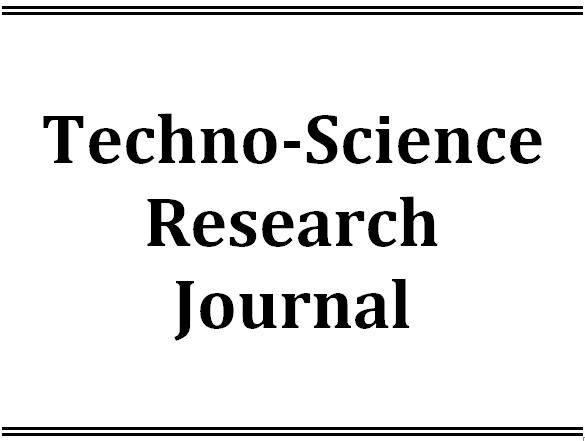Latest Issue
The Negative Experiences of Low-Income Citizen Commute and Their Intentions Toward Public Bus in Phnom Penh
Published: December 31,2025Reliability Study on the Placement of Electric Vehicle Charging Stations in the Distribution Network of Cambodia
Published: December 31,2025Planning For Medium Voltage Distribution Systems Considering Economic And Reliability Aspects
Published: December 31,2025Security Management of Reputation Records in the Self-Sovereign Identity Network for the Trust Enhancement
Published: December 31,2025Effect of Enzyme on Physicochemical and Sensory Characteristics of Black Soy Sauce
Published: December 31,2025Activated Carbon Derived from Cassava Peels (Manihot esculenta) for the Removal of Diclofenac
Published: December 31,2025Impact of Smoking Materials on Smoked Fish Quality and Polycyclic Aromatic Hydrocarbon Contamination
Published: December 31,2025Estimation of rainfall and flooding with remotely-sensed spectral indices in the Mekong Delta region
Published: December 31,2025Utilizing Data Mining And AI To Enhance Cambodian High School Student Performance And Stakeholder Success
-
1. Department of Applied Mathematics and Statistics, Institute of Technology of Cambodia, Russian Federation Blvd., P.O. Box 86, Phnom Penh, Cambodia
Received: July 12,2024 / Revised: August 20,2024 / / Accepted: September 02,2024 / Available online: April 30,2025
Despite significant improvement in education levels within Cambodia over recent decades, high school failure rates remain a persistent concern. A quick intervention through the usage of digital transformation is needed. Business Intelligence (BI) and Educational Data Mining (EDM), which offer powerful tools for extracting valuable insights from raw data, hold notable potential to address this challenge within the education domain. This research investigates the application of BI/EDM techniques to predict student achievement in high school students and analyzes effective features to help high school students reach their full potential. Data encompassing recent real-world factors such as student grades, demographics, socio-economic and school-related features was gathered through questionnaires. Most input features were modeled under various binary/five-level classification tasks. Additionally, eight data mining models (Multinomial Naïve Bayes, Decision Tree, Bootstrap Aggregating, Stochastic Gradient Descent, K-Nearest Neighbors, Random Forest, Support Vector Machines, and Neural Networks) were tested, alongside different input selection strategies (including and excluding semester grade). Evaluation metrics like Accuracy, Recall, Precision, and F-measure were used to assess models. The results demonstrate that highly accurate predictions of student achievement are achievable, particularly when incorporating grades from the first semester. Neural Network achieved the best result with an Accuracy of 93.40%, Precision of 95.45%, Recall of 96.55%, and F-Measure of 96.00%. Apriori algorithm is used to identify the relevant features and make a recommendation to the high school student based on the predicted result. While past performance emerges as a notable predictor, the explanatory analysis reveals the influence of other relevant features, including parental background, parent support, parent motivation, self-learning, self-motivation, learning environment, and even student health. This research led to the development of a more efficient analysis and reporting service that will streamline data analysis within the Learning Management System (LMS). It has the potential to significantly improve the quality of education and optimize educational resource management.

